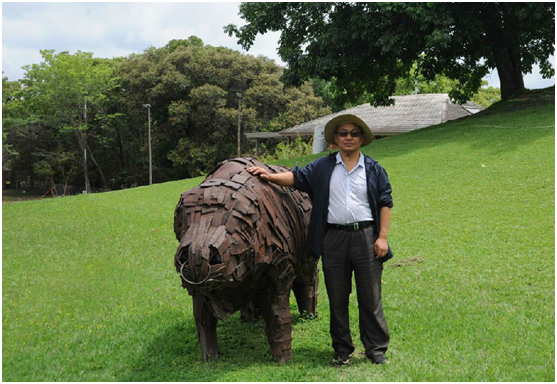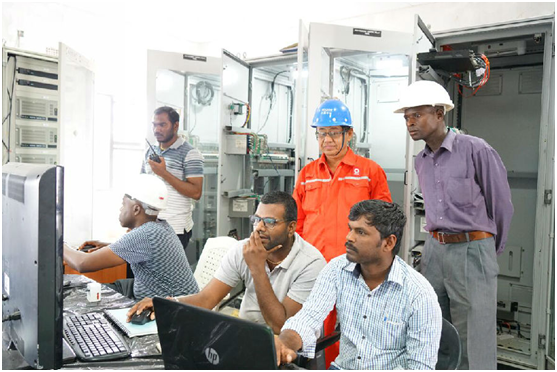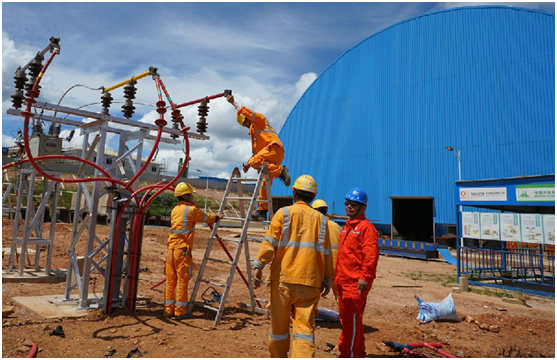Driving about 19 kilometers southeastward from Zambia's capital Lusaka, people can find a towering cement kiln pre-heater and a sign put up at the entrance of a valley saying the Zambia Industrial Park. It is the workplace of Li Jianjiang, manager of the production and technology section of Mpande, a subsidiary of Sinoma Cement Co.

Li Jianjiang [Photo/sasac.gov.cn]
Sinoma Cement Co, the developer of the project, is a subsidiary of China's largest comprehensive supplier of building materials -- China National Building Material Group (CNBM).
Although a bench-marking project of CNBM, the Zambia Industrial Park was short of professionals. In early January of 2017, Li was assigned to work there. In only a very short time, he has contributed a lot to the project.
The first challenge he had to deal with was the power supply to the construction site.
There was no existing transmission line between Zambia's leading power utility, Zesco Corporation, and the general step-down substation of the industrial park.

Li Jianjiang (center, back) works with his Zambian team members. [Photo/sasac.gov.cn]
After several rounds of negotiations with ZESCO, the two parties agreed on the funding for the construction of new transmission lines. But the remaining tasks, such as land expropriation, civil construction, building materials for towers and installations and wiring fell to Li Jianjiang and his team.
A 132KV transmission line was expected to have 45 towers along the route going through mountainous areas and farm land. However, it was not easy to gain the farmers’ permission to erect tower on their private land.
Though he was deemed an unwanted visitor, Li did not give up calling at the farmers’ houses. He showed up at their residences time and time again and negotiated compensation with them.

Li Jianjiang (R) at a construction site of a transmission line project in the Zambia Industrial Park [Photo/sasac.gov.cn]
Thanks to Li’s patience and communication skills, they agreed to allow tower construction on their farm land.
Local officials were quite surprised that the team took only a short time to gain the nod of these farmers. Judging from previous experience, they thought it would take no less than a year.
Neither was construction of another line, a 33kV transmission line that provides back-up power to the industrial park, an easy task.
Li and his team had to set up a total of 136 wooden poles for the transmission line, which partially runs through trackless mountainous areas. He blazed a trail in the wild, where dangerous snakes are most likely to live.
By March this year, all the towers and poles had been erected. On April 9, the 33kV back-up power began to supply electricity, enabling testing of electronic facilities in the park.
In August 2017, Li got a promotion and was given a team consisting of more than 200 Chinese and Zambian employees, one third of the employees in the industrial park.
He set down all the responsibilities of different positions in written form and organized pre-service training programs on employees’ duties.
In addition, Li used two-dimensional code technology to help identify every employee’s basic information like age, position and years of service, and their professional duties.
In order to improve communication with Zambian workers, Li revived his skills in English, the official language of Zambia, even though he was in his fifties. He gets up early to practice oral English. Now Li speaks fluent English and finds no barrier in communicating with the local people.
Besides his diligence and earnest attitude in work, good cooking skills are another of Li’s merits.
In January, Li was awarded as a “Star of Sinoma Cement”, the top honor for employees in the company.
(Executive editor: Hao Wen)